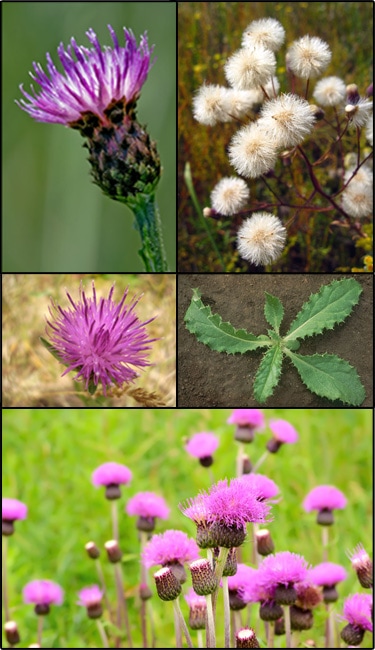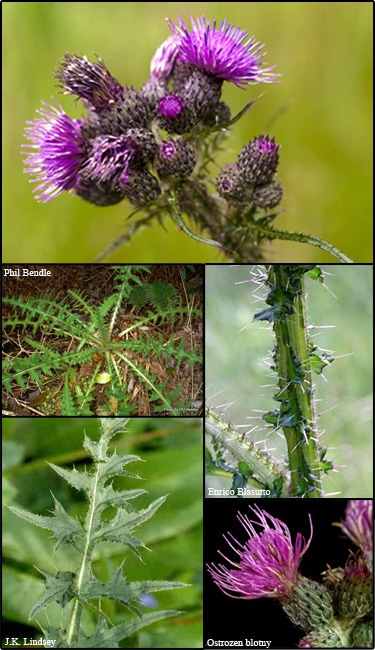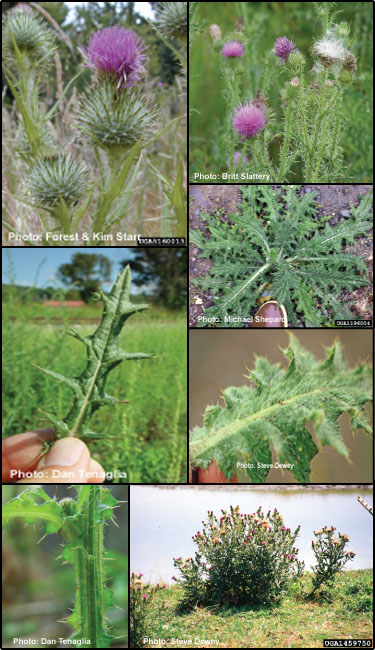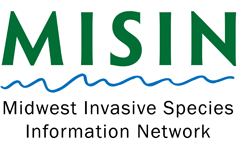|
To learn more about identifying native and non-native thistles,
check out this pamphlet (page 1, page 2), created by sister-CISMA Wild Rivers Invasive Species Coalition Why are these plants a problem? Like most invasive plants, Canada thistle, bull thistle, and European swamp thistle (see below) threaten to replace native plants in high quality natural areas, which in turn reduces critical food resources for birds, butterflies, and other wild creatures. Non-native thistle populations exist in many natural areas, but there are also native thistles, like the marsh thistle (Cirsium muticum). How do I manage non-native thistles? Prevent invasions by restoring disturbed areas with native plants, which through increased resource competition helps prevent invasive plants from forming monocultures. Before beginning control efforts, develop a management plan that includes surveys so that you can ensure you're best prioritizing control efforts. Control methods vary from species to species. For bull thistle and swamp thistle, hand pull from early spring through early summer. Leave the plant onsite but remove flowers, which will still produce seed. For Canada thistle, chemical control is needed due to the large tap root and horizontal roots, and because the plant is a perennial. You can find very thorough treatment instructions using the Midwest Invasive Plant Network (MIPN) control database (http://mipncontroldatabase.wisc.edu/).
|
| habitatmatters.org |
Contact US231-252-4148
3334 Veterans Drive Unit A Traverse City, Michigan 49685 |
Pleasant Peninsula Design, Habitat Matters 2017





